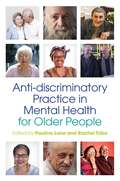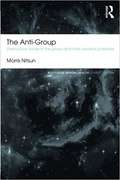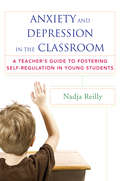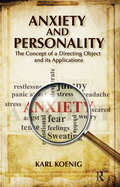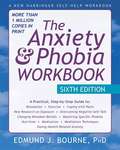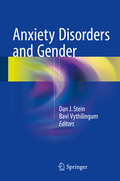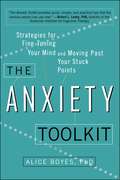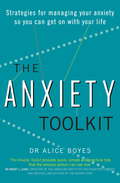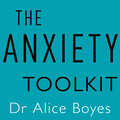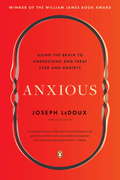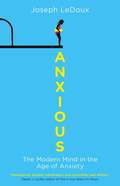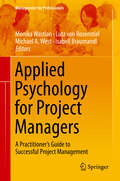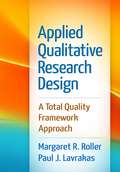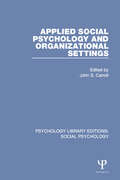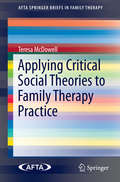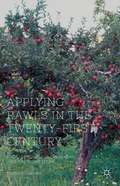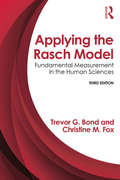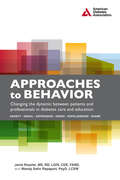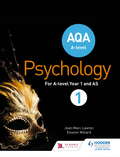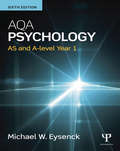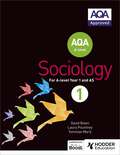- Table View
- List View
The Anthropology of Intentions
by Alessandro DurantiHow and to what extent do people take into account the intentions of others? Alessandro Duranti sets out to answer this question, showing that the role of intentions in human interaction is variable across cultures and contexts. Through careful analysis of data collected over three decades in US and Pacific societies, Duranti demonstrates that, in some communities, social actors avoid intentional discourse, focusing on the consequences of actions rather than on their alleged original goals. In other cases, he argues, people do speculate about their own intentions or guess the intentions of others, including in some societies where it was previously assumed they avoid doing so. To account for such variation, Duranti proposes an 'intentional continuum', a concept that draws from phenomenology and the detailed analysis of face-to-face interaction. A combination of new essays and classic re-evaluations, the book draws together findings from anthropology, linguistics and philosophy to offer a penetrating account of the role of intentions in defining human action.
Anti-discriminatory Practice in Mental Health Care for Older People
by Siobhan Spencer Rena Kydd-Williams Rachel Tribe Peter Cockersell Pauline Lane Musthafar Oladosu Matt Broadway-Horner Maria Castro Romero Ajit ShahExploring the key issues around anti-discriminatory practice for professionals working in mental health services, this book looks at ways to improve the health and social care of older people from minority and excluded communities. The chapters explore the issues involved in working with individuals from a range of minority groups, such as LGBT people, people with learning disabilities, people from black and minority ethnic communities, homeless people and people with dementia. The chapters cover important theory and research into discrimination, ageing and identity. Contributions from experts in the fields of mental health and working with minority groups provide practical insights into developing anti-discriminatory practice.There is also practical advice on culturally appropriate support for carers, cultural competency in end of life care, working with interpreters, and celebrating diversity, accompanied by supporting practical resources. This comprehensive book will provide mental health practitioners and students with an essential understanding of anti-discriminatory practice.
The Anti-Group: Destructive Forces in the Group and Their Creative Potential (Routledge Mental Health Classic Editions)
by Morris NitsunThe 'anti-group' is a major conceptual addition to the theory and practice of group psychotherapy. It comprises the negative, disruptive elements, which threaten to undermine and even destroy the group, but when contained, have the potential to mobilise the group's creative processes. Understanding the 'anti-group' gives therapists new perspectives on the nature of relationships and alternative strategies for managing destructive behaviour.
Anxiety and Depression in the Classroom: A Teacher's Guide to Fostering Self-Regulation in Young Students
by Nadja ReillyGuidance for teachers on two pressing problems in student mental health. Anxiety and depression are two of the most common mental health problems for young students, and can be particularly hard to detect and support. In this book, the first of its kind for teachers, Nadja Reilly lays out with richly detailed examples the signs to look for so educators can direct their students to help and ensure emotional wellness in the classroom. Grounded in recent psychological research and practical self-regulation tools, Reilly opens her study out onto nourishing emotional wellness in all students, communicating with parents, and schoolwide mental health advocacy.
Anxiety and Personality: The Concept of a Directing Object and its Applications
by Karl KoenigThe concept of a "directing object" is based on extensive clinical observations linked to a combination of ego psychology and object relations theory in the tradition of Otto Kernberg and Anne Marie and Joseph Sandler. People with a phobic disposition are those who were not, during childhood, permitted to learn by trial and error and thus gain confidence in their actions. They did not learn to direct their own actions and did not develop confidence in their capability to act successfully. In their inner world, they did not establish an internal directing object. Thus, they now need an external directing object, who watches over them. This has considerable influence on interpersonal relationships and on work. Phobic persons can work without difficulty when there is a external directing object, but they will not be able to work without such a companion. In therapy, they use their therapist as a directing object, which can create the illusion that the phobic patient is already much better. However the patient will fall back into phobic symptomatology when the therapist is no longer available as a directing object. Applying the concept of a directing object helps to understand a phobic person's psychodynamics. This will improve the results of therapy, and also help phobic persons to compensate difficulties arising from the lack of a companion, and deal with difficulties in finding and keeping one. Therapy can help them to develop their own internal directing object.
The Anxiety and Phobia Workbook
by Edmund J. BourneNow in its sixth edition and recommended by therapists worldwide, The Anxiety and Phobia Workbook has been the unparalleled, essential resource for people struggling with anxiety and phobias for almost thirty years. Living with anxiety, panic disorders, or phobias can make you feel like you aren't in control of your life. If you're ready to tackle the fears that hold you back, this book is your go-to guide. Packed with the most effective skills for assessing and treating anxiety, this evidence-based workbook contains the latest clinical research. You'll develop a full arsenal of skills for quieting fears and taking charge of your anxious thoughts. Written by a leading expert in cognitive behavioral therapy (CBT) and a classic in its field, this fully revised edition offers powerful, step-by-step treatment strategies for panic disorders, agoraphobia, generalized anxiety disorder (GAD), obsessive-compulsive disorder (OCD), post-traumatic stress disorder (PTSD), worry, and fear. You will also find updated information compatible with the DSM-V, as well as current information on medications and treatment, nutrition, mindfulness training, exposure therapy, and the latest research in neurobiology. Whether you suffer from anxiety and phobias yourself, or are a professional working with this population, this book will provide the latest treatment solutions for overcoming the fears that stand in the way of living a full, happy life. This workbook can be used on its own or as a supplement to therapy.
Anxiety Disorders and Gender
by Dan J. Stein Bavi VythilingumAnxiety and related disorders are common conditions that disproportionately affect women. In this book, the epidemiology, psychobiology, diagnosis, evaluation, pharmacotherapy and psychotherapy of major anxiety and related disorders are examined with special reference to the effects of gender and sex on clinical presentation and treatment. The conditions considered include generalized anxiety disorder, obsessive-compulsive disorder, panic disorder, posttraumatic stress disorder and social anxiety disorder. In addition, the management of anxiety and related disorders during pregnancy and lactation are discussed. Two concluding chapters specifically address anxiety disorders in women and in men, summarizing key points for clinicians and researchers. The authors are leading clinicians, including both psychiatrists and psychologists, from around the globe.
The Anxiety Toolkit: Strategies for Fine-Tuning Your Mind and Moving Past Your Stuck Points
by Alice BoyesDo you overthink before taking action? Are you prone to making negative predictions? Do you worry about the worst that could happen? Do you take negative feedback very hard? Are you self-critical? Does anything less than perfect performance feel like failure?If any of these issues resonate with you, you're probably suffering from some degree of anxiety, and you're not alone. The good news: while reducing your anxiety level to zero isn't possible or useful (anxiety can actually be helpful!), you can learn to successfully manage symptoms - such as excessive rumination, hesitation, fear of criticism and paralysing perfection.In The Anxiety Toolkit, Dr. Alice Boyes translates powerful, evidence-based tools used in therapy clinics into tips and tricks you can employ in everyday life. Whether you have an anxiety disorder, or are just anxiety-prone by nature, you'll discover how anxiety works, strategies to help you cope with common anxiety 'stuck' points and a confidence that - anxious or not - you have all the tools you need to succeed in life and work.From the Trade Paperback edition.
The Anxiety Toolkit: Strategies for managing your anxiety so you can get on with your life
by Dr Alice BoyesDo you overthink before taking action? Are you prone to making negative predictions? Do you worry about the worst that could happen? Do you take negative feedback very hard? Are you self-critical? Does anything less than perfect performance feel like failure?If any of these issues resonate with you, you're probably suffering from some degree of anxiety, and you're not alone. The good news: while reducing your anxiety level to zero isn't possible or useful (anxiety can actually be helpful!), you can learn to successfully manage symptoms - such as excessive rumination, hesitation, fear of criticism and paralysing perfection.In The Anxiety Toolkit, Dr Alice Boyes translates powerful, evidence-based tools used in therapy clinics into tips and tricks you can employ in everyday life. Whether you have an anxiety disorder, or are just anxiety-prone by nature, you'll discover how anxiety works, strategies to help you cope with common anxiety 'stuck' points and a confidence that - anxious or not - you have all the tools you need to succeed in life and work.
The Anxiety Toolkit: Strategies for managing your anxiety so you can get on with your life
by Dr Alice BoyesDo you overthink before taking action? Are you prone to making negative predictions? Do you worry about the worst that could happen? Do you take negative feedback very hard? Are you self-critical? Does anything less than perfect performance feel like failure?If any of these issues resonate with you, you're probably suffering from some degree of anxiety, and you're not alone. The good news: while reducing your anxiety level to zero isn't possible or useful (anxiety can actually be helpful!), you can learn to successfully manage symptoms - such as excessive rumination, hesitation, fear of criticism and paralysing perfection.In The Anxiety Toolkit, Dr Alice Boyes translates powerful, evidence-based tools used in therapy clinics into tips and tricks you can employ in everyday life. Whether you have an anxiety disorder, or are just anxiety-prone by nature, you'll discover how anxiety works, strategies to help you cope with common anxiety 'stuck' points and a confidence that - anxious or not - you have all the tools you need to succeed in life and work.
Anxious
by Joseph Ledoux"[Anxious] helps to explain and prevent the kinds of debilitating anxieties all of us face in this increasingly stressful world." --Daniel J. Levitin, author of The Organized Mind and This Is Your Brain On MusicA comprehensive and accessible exploration of anxiety, from a leading neuroscientist and the author of Synaptic SelfCollectively, anxiety disorders are our most prevalent psychiatric problem, affecting about forty million adults in the United States. In Anxious, Joseph LeDoux, whose NYU lab has been at the forefront of research efforts to understand and treat fear and anxiety, explains the range of these disorders, their origins, and discoveries that can restore sufferers to normalcy.LeDoux's groundbreaking premise is that we've been thinking about fear and anxiety in the wrong way. These are not innate states waiting to be unleashed from the brain, but experiences that we assemble cognitively. Treatment of these problems must address both their conscious manifestations and underlying non-conscious processes. While knowledge about how the brain works will help us discover new drugs, LeDoux argues that the greatest breakthroughs may come from using brain research to help reshape psychotherapy.A major work on our most pressing mental health issue, Anxious explains the science behind fear and anxiety disorders.
Anxious: Using the Brain to Understand and Treat Fear and Anxiety
by Joseph Ledoux"[Anxious] helps to explain and prevent the kinds of debilitating anxieties all of us face in this increasingly stressful world." --Daniel J. Levitin, author of The Organized Mind and This Is Your Brain On MusicA comprehensive and accessible exploration of anxiety, from a leading neuroscientist and the author of Synaptic SelfCollectively, anxiety disorders are our most prevalent psychiatric problem, affecting about forty million adults in the United States. In Anxious, Joseph LeDoux, whose NYU lab has been at the forefront of research efforts to understand and treat fear and anxiety, explains the range of these disorders, their origins, and discoveries that can restore sufferers to normalcy.LeDoux's groundbreaking premise is that we've been thinking about fear and anxiety in the wrong way. These are not innate states waiting to be unleashed from the brain, but experiences that we assemble cognitively. Treatment of these problems must address both their conscious manifestations and underlying non-conscious processes. While knowledge about how the brain works will help us discover new drugs, LeDoux argues that the greatest breakthroughs may come from using brain research to help reshape psychotherapy.A major work on our most pressing mental health issue, Anxious explains the science behind fear and anxiety disorders.
Anxious: The Modern Mind in the Age of Anxiety
by Joseph LedouxAnxiety is the most prevalent psychiatric problem of our time. Decades of research have gone into probing its mysteries and developing treatments. But what if we've been thinking about fear and anxiety in the wrong way for all these years?This is the groundbreaking premise behind a wave of new research, led by the lab of renowned neuroscientist Joseph LeDoux. He believes that fear and anxiety are not innate states, simply waiting to be unleashed in the brain. Rather they are assembled experiences, and that has huge implications for patients. By mapping brain circuits, LeDoux explains the origins of anxiety disorders and reveals discoveries that can restore sufferers to normality. As impressive as it is timely, Anxious is a comprehensive survey of cutting-edge research revolutionising the way we treat our most pressing mental health issue.s them and explains the science behind them that makes them work.
Anxious Politics
by Bethany Albertson Gadarian Shana KushnerEmotions matter in politics - enthusiastic supporters return politicians to office, angry citizens march in the streets, a fearful public demands protection from the government. Anxious Politics explores the emotional life of politics, with particular emphasis on how political anxieties affect public life. When the world is scary, when politics is passionate, when the citizenry is anxious, does this politics resemble politics under more serene conditions? If politicians use threatening appeals to persuade citizens, how does the public respond? Anxious Politics argues that political anxiety triggers engagement in politics in ways that are potentially both promising and damaging for democracy. Using four substantive policy areas (public health, immigration, terrorism, and climate change), the book seeks to demonstrate that anxiety affects how we consume political news, who we trust, and what politics we support. Anxiety about politics triggers coping strategies in the political world, where these strategies are often shaped by partisan agendas.
Applied Psychology for Project Managers: A Practitioner's Guide to Successful Project Management (Management for Professionals)
by Michael A. West Monika Wastian Isabell Braumandl Lutz RosenstielThis book offers an essential manual for project managers, project management offices (PMO's), trainers and consultants, addressing the psychological side of project management. Written by leading scholars in organizational psychology and by top experts in project management, it covers all major psychological topics that are key to project success. The book features dedicated chapters on leadership and teamwork, including virtual and intercultural cooperation, commitment and motivation of project teams. It adds a psychological perspective to personnel management, decision-making, information and knowledge management and communication in project work. Power, influencing tactics and other aspects of stakeholder management are covered, as well as project coaching, innovation and creativity, self-management and the management of conflicts, risks and crises.
Applied Qualitative Research Design
by Paul J. Lavrakas Margaret R. RollerThis unique text provides a comprehensive framework for creating, managing, and interpreting qualitative research studies that yield valid and useful information. Examples of studies from a wide range of disciplines illustrate the strengths, limitations, and applications of the primary qualitative methods: in-depth interviews, focus group discussions, ethnography, content analysis, and case study and narrative research. Following a consistent format, chapters show students and researchers how to implement each method within a paradigm-neutral and flexible Total Quality Framework (TQF) comprising four interrelated components: Credibility, Analyzability, Transparency, and Usefulness. Unlike other texts that relegate quality issues to one or two chapters, detailed discussions of such crucial topics as construct validity, interresearcher reliability, researcher bias, and verification strategies are featured throughout. The book also addresses applications of the TQF to the writing, review, and evaluation of qualitative research proposals and manuscripts. Pedagogical Features: *Summary tables that highlight important content, such as the application of a method to vulnerable or hard-to-reach populations. *Case studies that illustrate TQF standards in practice for each method. *Guidelines for effective documentation (via thick descriptions) of each type of study. *End-of-chapter discussion topics, exercises, and suggested further reading and Web resources. *Chapters open with a preview and close with a bulleted summary of key ideas. *Extensive glossary.
Applied Social Psychology and Organizational Settings (Psychology Library Editions: Social Psychology)
by John S. CarrollOriginally published in 1990, this title presents work that bridges social psychology and organizations. The primary goal is understanding, but that goal has two opposite sides: understanding organizations by bringing to bear the concepts and methods of social psychology (along with other social sciences), and understanding and developing social psychology by confronting it with the phenomena of actual organizational life. As such the authors break down some traditional stereotypical barriers between the academic world and the business world, between theoretical and applied research, between laboratory and field, and between various academic sub-disciplines. The result is a series of challenging forays into new research domains from which provocative ideas and provocative phenomena emerge.
Applying Critical Social Theories to Family Therapy Practice (AFTA SpringerBriefs in Family Therapy #0)
by Teresa McdowellThis volume applies critical social theories to family therapy practice, using sociopolitical context for a clearer focus on the power dynamics of couple and family relationships. Its decolonizing approach to therapy is shown countering the pervasive cultural themes that grant privilege to specific groups over others, feeding unequal and oppressive relationships that bring families and couples to treatment. Therapy is shown here as a layered and nuanced process, with practitioners developing an ethical human rights perspective toward their work as they aid clients in negotiating for greater justice and equity in their relationships. The book bridges theory and practice by giving readers these essential tools: Strategies for asking clients about social class. A framework for understanding gender issues within the larger patriarchy. Guidelines for relating concepts of race and class in therapy. Structure for creating the family cartography. Ways to utilize a queer perspective in therapy. Illustrative case examples throughout. Breaking new ground in family therapy, Applying Critical Social Theories to Family Therapy Practice challenges social workers, social work researchers, therapists, and psychologists to push beyond current ideas of social awareness and cultural competence toward truly liberatory client-centered practice. .
Applying Rawls in the Twenty-First Century
by Martin D. CarcieriJohn Rawls is the most influential political thinker of the twentieth century. Most of the scholarly literature on Rawls defends, critiques, or elaborates on some aspect of his theory. These writings are often valuable, yet this book goes beyond them. Like a few scholars, rather than debating whether and how Rawls got things right or wrong, Martin Carcieri take his well-defended principles of justice - especially the equal liberty, fair equality of opportunity, and difference principles atthe core of his theory - as given and apply them to aspects of four major, enduring, concrete domestic policy, ethical, and constitutional issues. These applications yield counter-intuitive implications that will challenge the ideological left and right alike, contributing to our understanding both of Rawls and of these issues. At the core, this book deepens our understanding of these issues and points the way toward rational, just policy reform.
Applying the Rasch Model: Fundamental Measurement in the Human Sciences, Third Edition
by Trevor Bond Christine M. FoxCited over 1900 times, this classic text facilitates a deep understanding of the Rasch model. The authors review the crucial properties of the model and demonstrate its use with a variety of examples from education, psychology, and health. A glossary and numerous illustrations aid the reader's understanding. Readers learn how to apply Rasch analysis so they can perform their own analyses and interpret the results. The authors present an accessible overview that does not require a mathematical background. Highlights of the new edition include: -More learning tools to strengthen readers’ understanding including chapter introductions, boldfaced key terms, chapter summaries, activities, and suggested readings. -Divided chapters (4, 6, 7 & 8) into basic and extended understanding sections so readers can select the level most appropriate for their needs and to provide more in-depth investigations of key topics. -A website at www.routledge.com/9780415833424 that features free Rasch software, data sets, an Invariance worksheet, detailed instructions for key analyses, and links to related sources. -Greater emphasis on the role of Rasch measurement as a priori in the construction of scales and its use post hoc to reveal the extent to which interval scale measurement is instantiated in existing data sets. -Emphasizes the importance of interval level measurement data and demonstrates how Rasch measurement is used to examine measurement invariance. -Insights from other Rasch scholars via innovative applications (Ch. 9). -Extended discussion of invariance now reviews DIF, DPF, and anchoring (ch. 5). -Revised Rating Scale Model material now based on the analysis of the CEAQ (ch.6). -Clarifies the relationships between Rasch measurement, True Score Theory, and Item Response Theory by reviewing their commonalities and differences (Ch.13). -Provides more detail on how to conduct a Rasch analysis so readers can use the techniques on their own (Appendix B). Intended as a text for graduate courses in measurement, item response theory, (advanced) research methods or quantitative analysis taught in psychology, education, human development, business, and other social and health sciences, professionals in these areas also appreciate the book‘s accessible introduction.
Approaches to Behavior
by Janis Roszler Wendy S. RapaportApproaches to Behavior provides information and simple tools that healthcare professionals can use to help patients move beyond feelings that prevent them from benefiting fully from any learning opportunity. Each chapter opens with an introduction to experts' newest psychological understanding about a common emotion. This is followed by a list of easy techniques healthcare professionals can employ with their patients. Each technique was contributed by experienced mental health experts who counsel people with diabetes. None of these techniques can take the place of the in-depth guidance mental healthcare professionals provide. Instead, this book is a first aid kit that experts can use to help patients start to move past strong emotions and become more receptive to vital information that will improve their lives and help them take control of their diabetes.
AQA A-level Psychology Book 1
by Jean-Marc Lawton Eleanor WillardExam Board: AQALevel: AS/A-levelSubject: PsychologyFirst Teaching: September 2015First Exam: June 2016AQA ApprovedEquip your students with the knowledge and the skills that they need for the new AQA Psychology AS and A-level; guidance on assessment objectives, activities and clear, comprehensive coverage consolidates understanding and develops key skills to ensure progression- Thoroughly engage your students with Psychology at AS and A-level through extensive real-life contemporary research- Ensure your students learn and understand content for all the key topics with popular clear, accessible style from Jean-Marc Lawton and Eleanor Willard- Help your students understand the assessment objectives and develop their examination skills with assessment guidance and checks throughout and practice questions- Ensure progression and encourage independent thinking with extension suggestions and activities- Supports co-teaching of AS and year one A-level for the new AQA specification
AQA A-level Psychology Book 2
by Eleanor Willard Jean-Marc LawtonEquip your students with the knowledge and the skills that they need for the new AQA Psychology A-level, with guidance on assessment objectives, clear, comprehensive coverage and activities that consolidate understanding, develop key skills and ensure progression. - Thoroughly engage your students with Psychology at A-level through extensive real-life contemporary research - Ensure students learn and understand content for all the key topics with popular clear, accessible style from Jean-Marc Lawton and Eleanor Willard - Helps your students understand the assessment objectives and develop their examination skills with assessment guidance and checks throughout and practice questions - Ensures progression and encourages independent thinking with extension suggestions and activities
AQA Psychology: AS and A-level Year 1
by Michael EysenckAQA Psychology for AS and A-level Year 1 is the definitive textbook for the new 2015 curriculum. Written by eminent psychologist Professor Michael Eysenck, in collaboration with a team of experienced A-level teachers and examiner, the book enables students not only to pass their exams with flying colours, but also to fully engage with the science of psychology. As well as covering the six core topics students will study, the book includes: Activities which test concepts or hypothesises, bringing theory to life. Key research studies explained and explored, showing the basis on which theory has developed Case studies which show how people's lives are affected by psychological phenomena Evaluation boxes which critically appraise key concepts and theories Self-assessment questions which encourage students to reflect on what they've learnt Section summaries to support the understanding of specific ideas - perfect for revision Exam hints which steer students towards complete and balanced answers Key terms defined throughout so students aren't confused by new language 200 figures, tables and photos End of chapter further reading to enable students to develop a deeper understanding End of chapter revision questions and sample exam papers to consolidate knowledge and practice exam technique A full companion website with a range of further resources for both students and teachers, including revision aids and class materials Incorporating greater coverage of research methods, as well as key statistical techniques, the sixth edition of this well-loved textbook continues to be the perfect introduction to psychology. Accessible yet rigorous, the book is the ideal textbook for students taking either the AS course or year 1 of the A-level.
AQA Sociology for A-level Book 1
by David Bown Laura Pountney Tomislav MaricExam Board: AQALevel: AS/A-levelSubject: SociologyFirst Teaching: September 2015First Exam: June 2016Build students' understanding with this concept-driven approach to the 2015 AQA A-level Sociology specification, written by a team of leading subject authors and approved by AQA.- Develop the knowledge required to master Year 1 topics with clear and accessible content coverage- Build confidence in the evaluative skills needed to assess sociological theories and research- Strengthen learning and revision with a wealth of practice and extension questions and activities

